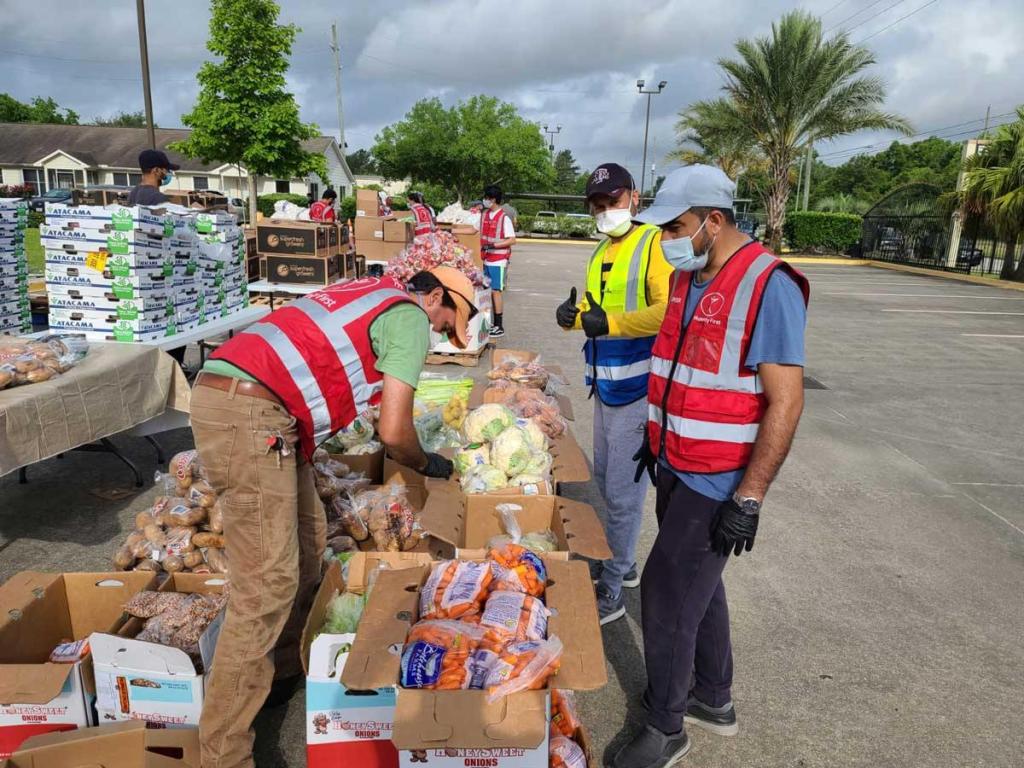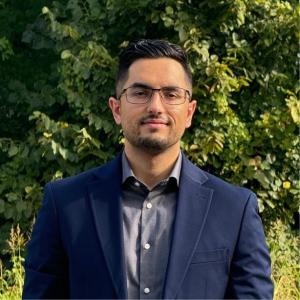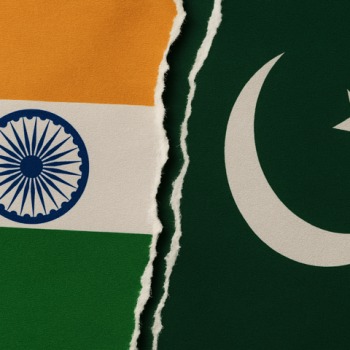
Hunger Action Month Ends
While Hunger Action Month ended yesterday, that doesn’t mean our work to end hunger stops. Hunger is a pervasive global crisis, affecting billions and highlighting deep-seated inequities in our world. For Muslims, the call to alleviate hunger is not just a matter of charity; it is a fundamental tenet of faith that intertwines with the core values of compassion, justice, and loving our neighbors. The teachings of the Qur’an and the Prophet Muhammad’s (peace be upon him) sayings provide deep guidance on how to confront this pressing issue.
At the heart of Islam’s response to hunger lies a clear directive to care for the needy. The Qur’an emphasizes this moral obligation repeatedly. For instance, in Surah Al-Baqarah (2:177), Allah outlines the essence of righteousness:
“Righteousness is not that you turn your faces toward the east or the west, but [true] righteousness is in one who believes in Allah, the Last Day, the Angels, the Book, and the Prophets and gives his wealth, despite love for it, to relatives, orphans, the needy, the traveler, those who ask [for help], and for freeing slaves; [and who] establishes prayer and gives zakah; [those who fulfill their] promise when they promise; and [those who are] patient in poverty and hardship and during battle. Those are the ones who have been true, and it is those who are the righteous.” (Surah Al-Baqarah 2:177)
This powerful verse highlights that true faith manifests in action—especially through generosity toward the vulnerable. It calls on Muslims to extend their hands to those who are less fortunate, emphasizing that our wealth should be shared.
Social Responsibility
The teachings of the Prophet Muhammad (peace be upon him) further reinforce this message. He once said, “The best of people are those who are most beneficial to others.” (Al-Mu’jam Al-Awsat, Hadith 1101). This statement is an important call to embody social responsibility. The Holy Prophet himself practiced what he preached, regularly sharing his food and resources, even when he had little to spare. His life serves as a model of generosity, reminding us that acts of kindness should be central to our daily lives.
In Islam, the institution of Zakah plays a critical role in the fight against hunger. Zakah, which requires Muslims to donate 2.5% of their accumulated and unspent wealth annually, is not merely a formality; it is a means to purify one’s wealth and support those in need. The Qur’an states in Surah At-Tawbah (9:60), “Zakah expenditures are only for the poor and for the needy and for those employed to collect [the funds] and for bringing hearts together [for Islam] and for freeing captives and for those in debt and for the cause of Allah and for the traveler; an obligation [imposed] by Allah. And Allah is Knowing and Wise.” (Surah At-Tawbah 9:60)
This verse illustrates the various purposes of Zakah, emphasizing that it is designed to address the needs of the most vulnerable members of society. It serves as a vital lifeline for those struggling with hunger and goes further to eliminate poverty entirely. However, addressing hunger cannot rest solely on individual acts of charity. Islam emphasizes communal responsibility. The concept of Ummah, or community, underscores the importance of collective action. The Prophet Muhammad (peace be upon him) taught, “Whoever among you sees an evil must change it with his hand; if he is not able to, then with his tongue; and if he is not able to, then with his heart; and that is the weakest of faith.” (Sahih Muslim)
No One Goes Hungry
This Hadith reminds us that it is not enough to feel compassion; we must actively work to combat injustice and suffering. This includes hunger, urging Muslims to mobilize their resources and voices to challenge the systems that perpetuate poverty. Thus, a comprehensive approach to addressing hunger must incorporate immediate relief as well as long-term systemic change. While supporting local agriculture and promoting sustainable practices can help feed people, advocating for just policies would lead to lasting change. By embodying principles of justice and equity, Muslims can contribute to a world where resources are shared fairly and no one goes hungry.
In line with these teachings, Hazrat Mirza Ghulam Ahmad, the Promised Messiah (peace be upon him), emphasized the importance of uplifting the poor and caring for the less fortunate. He stated, “The wealthier people should be thankful that God has bestowed upon them the opportunity to help the poor and thereby improve their own spiritual and worldly condition.” This profound guidance underscores the idea that helping others is not only a duty but also a means of spiritual progress. It reminds us that alleviating the suffering of the poor is key to building a just society.
Furthermore, Hazrat Mirza Bashiruddin Mahmud Ahmad, the second Caliph of the Ahmadiyya Muslim Community, highlighted the necessity of supporting the poor for the progress of society. He said, “The progress of a nation cannot be achieved without the uplifting of the poor. A society that ignores its impoverished members will eventually crumble.” This powerful statement emphasizes that the future of a society is intricately linked to how it treats its most vulnerable.
The Islamic response to hunger is firmly rooted in compassion, responsibility, and proactive action. Feeding the hungry and advocating for the marginalized are not merely acts of charity; they are manifestations of our faith and humanity. As we confront the ongoing global hunger crisis, let us heed the teachings of the Qur’an and the Prophet Muhammad (peace be upon him), striving to be sources of benefit for others. The fight against hunger is a collective endeavor that reflects our commitment to justice and care for our fellow human beings.














